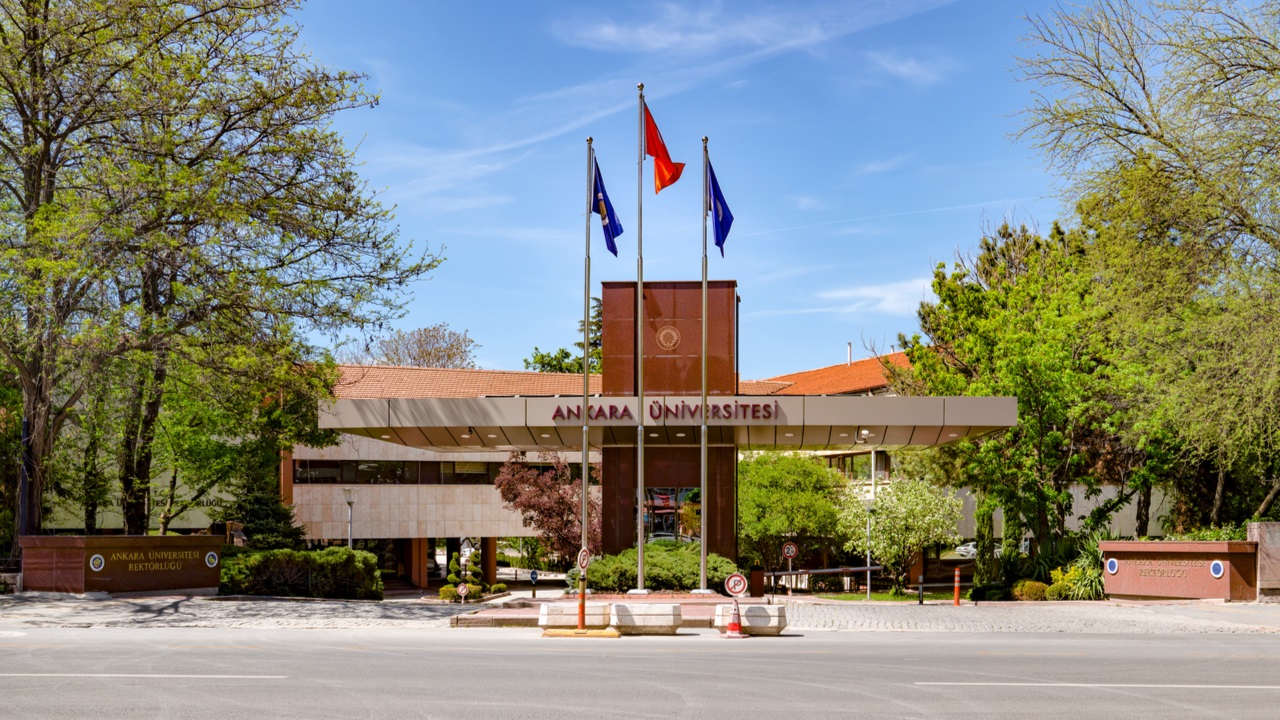 The University of Wyoming has launched a Bitcoin research institute to produce high-quality peer-reviewed publications about bitcoin from all academic disciplines. The institute’s director highlighted the need for informed research, criticizing previous work for its lack of fundamental understanding of bitcoin. University of Wyoming Launches Bitcoin Research Institute The University of Wyoming (UW) has launched […]
The University of Wyoming has launched a Bitcoin research institute to produce high-quality peer-reviewed publications about bitcoin from all academic disciplines. The institute’s director highlighted the need for informed research, criticizing previous work for its lack of fundamental understanding of bitcoin. University of Wyoming Launches Bitcoin Research Institute The University of Wyoming (UW) has launched […]

The scam often starts on a Facebook ad where those interested click the link and are met with a “Letter from the Professor” or “Letter from the Dean” on the company website.
Washington’s financial regulator has warned the public of an emerging crypto scam — where fraudsters pose as business “professors” to trick victims into depositing their hard-earned funds into a crypto scam or face “legal action.”
The “self-proclaimed professors” claim to be part of an “Academy,” “Business School,” or “Wealth Institute,” enticing victims with courses that can result in “exorbitant rates of return,” according to a July 16 statement by the Washington State Department of Financial Institutions (DFI).
Victims typically come across the investment opportunity on a Facebook ad where they click the link and are met with a “Letter from the Professor” or “Letter from the Dean” on the company website.

The 2018 MIT professor Gary Gensler didn’t think most ICOs triggered U.S. securities laws.
The crypto community is calling out the hypocrisy of Gary Gensler, the head of the United States securities regulator, after a 2018 video emerged of him stating that cryptocurrencies are on par with commodities or cash and are not securities.
The video came from a “Blockchain and Money” class in the Fall Semester of 2018 taught by Gensler, a former professor at the Massachusetts Institute of Technology (MIT) before he became chair of the Securities and Exchange Commission (SEC).
On the topic of initial coin offerings (ICOs), Gensler said that "three-quarters of the market are not ICOs or not what would be called securities" and named the U.S., Canadian and Taiwanese markets as the "three jurisdictions that follow something similar to the Howey Test."
"Three-quarters of the market is non-securities, it's just a commodity, cash,crypto,” Gensler then said.
The below clip is from a Fall 2018 Graduate MIT course called "Blockchain and Money"
— zk- (@ZK_shark) April 25, 2023
Gary Gensler - the current President of the SEC, was the professor.
The Hypocrisy speaks for itself
"So we already know in the US and in many other jurisdictions that 3/4 of the market… pic.twitter.com/rjRWeq5P8X
While Gensler briefly acknowledged that ICOs may spark a securities debate, he concluded that “three-quarters of the market is not particularly relevant as a legal matter.”
Several members of the crypto community were stunned by Gensler’s remarks.
Coinbase CEO Brian Armstrong commented a mere “Wow” in response to an April 26 Twitter post shared by cryptocurrency researcher “zk-SHARK.”
— Brian Armstrong ️ (@brian_armstrong) April 26, 2023
Erik Voorhees, the founder of crypto trading platform ShapeShift asked "When does someone get arrested for fraud?" in an April 25 Twitter post to his 658,900 followers.
When does someone get arrested for fraud? https://t.co/5BtU2sT5x2
— Erik Voorhees (@ErikVoorhees) April 25, 2023
Farokh Sarmad, the founder of Web3 podcast Rug Radio called Gensler “disgusting” in a tweet to his 346,200 followers, while a systems engineer, named “JD” called on the SEC Chair to provide an explanation behind the change in opinion.
Not everyone saw eye to eye though.
Related: Gary Gensler refuses to answer if ETH is a security: SEC hearing
U.S. lawyer Preston Byrne explained that professors and law enforcers work in “different capacities” and Gensler shouldn’t be held to the same views he had back then.
I see a lot of people giving Gary Gensler a hard time over this but it’s important to note the different capacities in which he’s speaking. As a professor, he can talk about what things are in the abstract. As a law enforcer, he’s required to enforce the laws as they’re written. https://t.co/mYhd7Hm8I9
— Preston Byrne (@prestonjbyrne) April 26, 2023
Another U.S. lawyer, Jonathan Schmalfeld, who specializes in blockchain technology, challenged Byrne’s opinion by stating that Gensler’s interpretation of the Howey Test shouldn’t change by virtue of his capacity. The response prompted a second explanation from Byrne:
“I mean when I talk with clients about this stuff there are three answers, what I think the law is, how I think enforcers will interpret it, and what the law ought to be. Right now he’s limited to giving only one of those answers by virtue of his position.”
Magazine: Crypto regulation — Does SEC Chair Gary Gensler have the final say?
 Nanjing University in China has reportedly launched one of the first majors in the country dedicated to the study of metaverse-related knowledge. The university, located in eastern China, stated that this new push is directed to impart new metaverse-related courses that will help more students to fulfill the needs of metaverse companies. Nanjing University to […]
Nanjing University in China has reportedly launched one of the first majors in the country dedicated to the study of metaverse-related knowledge. The university, located in eastern China, stated that this new push is directed to impart new metaverse-related courses that will help more students to fulfill the needs of metaverse companies. Nanjing University to […]
Crypto educated American moms and dads are already sinking an average of $766 into extra-curricular crypto education for their kids, according to the survey.
Over two-thirds of U.S. parents and college graduates with an understanding or involvement in crypto believe that crypto should be taught in schools in order for students to “learn about the future of our economy,” a new study has found.
In a newly released survey from the online educational platform Study.com, the firm found that 64% of the parents 67% of the college graduates surveyed believed that cryptocurrencies should be part of mandatory education.
Both groups had a slightly different view when it came to the blockchain, the Metaverse, and non-fungible tokens (NFTs) however, with only around 40% believing those subjects should be included in the curriculum as well.
In order to take part in the survey, the parents and college grads were screened to ensure the subjects had a sufficient level of understanding of blockchain tech, crypto, NFTs, and the Metaverse and disqualified anyone that didn't understand the topics from participation. The survey included 884 American parents and 210 American college graduates
The results come amid the increasing awareness and adoption of cryptocurrencies in the United States. According to data research center Pew, around 88% of Americans have at least heard of cryptocurrencies, while 16% of U.S. residents have invested or traded cryptocurrencies at some point in their lives.
The survey found that both parents and college graduates who had invested in crypto are likely to contribute money to crypto education, with three-quarters of crypto-hodling parents contributing an average of $766 to their children’s crypto education, while over three-quarters of crypto-invested graduates were spending an average of $1,086 on education.
The University of Connecticut and Arizona State University are among U.S.-based colleges that have introduced introductory courses on blockchain tech and crypto applications. According to Connecticut professor Marianne Lewis, her university's 14-week optional class is designed to help students “learn how to manage cryptocurrencies and how such digital assets impact our economy.”
Prestigious universities such as Massachusetts Institute of Technology (MIT) and Harvard University have also begun offering similar courses.
Related: Top universities have added crypto to the curriculum
The survey also found that both groups agreed that learning about "the future of our economy" was most important, as well as a means to “diversify investments”, “to create opportunities” and “develop an investing mind.”
In an interview with Cointelegraph in May, CEO of TZ APAC Colin Miles suggests that crypto could be incorporated into secondary and tertiary schools curriculums within three to five years, stating:
“Overall, this trend will become a mainstay because a large number of exciting new jobs will come from the Web3 environment. It is, therefore, incumbent on educational institutions to help gear their student cohorts up for this important shift.”
New York City mayor Eric Adams also said in an interview last year that local schools should embrace blockchain technology and digital assets:
“We must open our schools to teach [blockchain] technology, to teach this new way of thinking.”
 A Russian university is ready to test its blockchain-based analogue to the global payment messaging network SWIFT, from which Russian banks were cut off as part of Western sanctions. The developers say their system would not allow the disconnecting of countries and banks. Russian Developers Create SWIFT Substitute Using Blockchain Experts from the Competence Center […]
A Russian university is ready to test its blockchain-based analogue to the global payment messaging network SWIFT, from which Russian banks were cut off as part of Western sanctions. The developers say their system would not allow the disconnecting of countries and banks. Russian Developers Create SWIFT Substitute Using Blockchain Experts from the Competence Center […]
TZ APAC’s Colin Miles says that a new partnership with the National University of Singapore (NUS)’s School of Computing will help students learn about Tezos and blockchain.
Colin Miles, the newly-appointed CEO of TZ APAC expects blockchain and web 3.0 curricula to start becoming an integral part of secondary and tertiary education within the next three to five years.
“I would think it's that classic medium-term, three-to-five timeline,” said Miles.
Miles was speaking to Cointelegraph after the announcement of TZ APAC’s partnership deal with the National University of Singapore (NUS)’s School of Computing on May 10, which will see the Tezos agency supporting the development of the university’s new center for Nurturing Computing Excellence. Miles said:
“If you have a dedicated center in NUS, which runs blockchain courses every day of every week for students… it will become part of the fabric of one of the best computing schools in the world. I would imagine that most other schools would look to that as an example to follow.”
NUS currently offers an in-depth blockchain curriculum aimed at a range of levels from beginners to CEOs and mid-level managers. Other well-known universities offering courses in blockchain include Massachusetts Institute of Technology (MIT), Harvard University, Oxford University, Cornell University and University of California Berkeley.
Related: Top universities have added crypto to the curriculum
“Overall this trend will become a mainstay, because a large number of exciting new jobs will come from the Web3 environment. It is therefore incumbent on educational institutions to help gear their student cohorts up for this important shift,” he said.
TZ APAC is the Asia-based blockchain adoption entity supporting the Tezos (XTZ) ecosystem. Tezos is an open-source proof-of-stake blockchain launched in 2018 as a platform for smart contracts.
As part of the newly announced partnership, TZ APAC has been tasked with creating a blockchain developer curriculum where students will be able to take part in classes, workshops, developer hackathons and other practicals aimed at educating students about the Tezos blockchain.
TZ APAC will also be supporting the university through the provision of a grant, which Miles said will go towards administrative support for running courses for undergraduates, as well as postgraduates and PhD students and their final year projects.
TZ APAC @NUSComputing
— TZ APAC (@TzApac) May 10, 2022
We’re delighted to partner with NUSComputing to set up the Centre for Nurturing Computing Excellence to build a strong #talent pipeline in fast-growing fields such as #blockchaintechnology and #cloudcomputing.
Read more at: https://t.co/QX3mWU2QMS
Singapore has been leading the way in terms of institutionalizing crypto education, said Miles, particularly when compared against other APAC countries.
“Singapore is starting to inculcate this education into the curriculum in a positive way.”
“They're starting to add these through smaller vocational courses… but you can imagine the next step is to literally burn it into their curriculum so that their undergrads can go through this process without having to do it voluntarily or otherwise.”
Led by Associate Professor Tan Sun Teck from NUS Computing, the new Center will give students an avenue to learn directly from experts in the field of blockchain technology, cloud computing and data science.
“By partnering with pioneering organizations such as TZ APAC, students will have the opportunity to benefit from real-world expertise at a critical juncture of their education,” said Professor Tan.
Miles said that partnering with universities, academies and schools around the region are one of the key methods used by TZ APAC to drive adoption of the Tezos blockchain.
“We now have a very strong proposition for educational institutions in the region. In partnership with [them], we can reach tens of thousands, if not hundreds of thousands of students, to not only help them understand the blockchain economy, but also Tezos blockchains’ role in that as well.”
 Ankara University has become the first higher education institution in Turkey to organize a course on non-fungible tokens (NFTs). The freshly-launched lecture has been attended by high-ranking government officials, local media reported. Leading University in Turkey Begins Course on NFTs Ankara University has added a course on NFTs to its curriculum, becoming the first Turkish […]
Ankara University has become the first higher education institution in Turkey to organize a course on non-fungible tokens (NFTs). The freshly-launched lecture has been attended by high-ranking government officials, local media reported. Leading University in Turkey Begins Course on NFTs Ankara University has added a course on NFTs to its curriculum, becoming the first Turkish […]
The SDSU announced that it’s accepting donations in cryptocurrency to fund activities that promote crypto adoption within the university.
Back in October 2021, The Campanile Foundation (TCF), an auxiliary of the San Diego State University (SDSU), accepted its first crypto donation. Now, the university announced that it is welcoming digital currency donations in Bitcoin (BTC) and Ether (ETH).
TCF Chief Financial Officer David Fuhriman said one percent of the total crypto holdings would be withdrawn quarterly to fund campus activities that aim to discover how the university could interact with crypto, such as working on a system that permits broader digital transactions within the university.
Meanwhile, the rest of the funds will be converted into BTC and will not be liquidated immediately, with hopes that the price will go up in the future and help more programs.
SDSU accepted the university's first cryptocurrency donation this fall, opening the door to similar contributions in the future.
— San Diego State University (@SDSU) January 14, 2022
More on digital currency donations. https://t.co/UsXeG9FaGc pic.twitter.com/NLREW4mPHk
While the crypto market is volatile and holding the assets could lead to a potential loss, the university remains bullish. “If the value of bitcoin goes up, then this endowment could last forever,” Fuhriman said. The CFO underscored that they believe that holding could provide good long-term benefits for the SDSU.
The SDSU’s entry into the crypto space aims to attract other potential donors who are interested in supporting crypto-related programs in the university. Fuhriman also mentioned that it could also draw the attention of younger donors who might have unconventional perspectives when it comes to wealth creation.
Related: Green and gold: The crypto projects saving the planet
While the SDSU is adamant about accepting crypto donations, organizations like Wikimedia and Mozilla are under fire because of it. A rising number of Wikimedia contributors are urging the nonprofit to stop accepting donations in cryptocurrency because of crypto’s negative impact on the environment. According to the proposal, the acceptance of crypto violates Wikimedia’s commitment to sustainability.
Mozilla faced a similar issue. After tweeting a reminder that the platform is accepting crypto donations, the organization faced backlash from its followers led by Mozilla’s co-founder Jamie Zawinski who thinks that the entire crypto industry only manufactures pollution and converts it into cash.

The funds from EduDAO will be used for research, education and entrepreneurship in Web 3.0 technologies among the world's top universities.
On Thursday, BitDAO, one of the world's largest decentralized autonomous organizations with over $2.5 billion assets under management and its partner Mirana Ventures, announced the creation of EduDAO with eight of the world's top universities including the University of California Berkeley, MIT, Harvard and Oxford University.
EduDAO is financed by the BitDAO treasury and will allocate $11 million each year to funding project grants, research and standalone product development with $33 million in initial capital. The funds will go to academic research for next-generation blockchain and Web 3.0 technologies.
"Tomorrow’s most promising products and designs are being devised at the university level right now; this partnership facilitates that growth at a scalable level by giving students and faculties access to sorely needed investment capital," said John Allen of Mirana Ventures.
Roman Ugarte and Virat Talwar, co-presidents of the Harvard Blockchain Club, said: "Placing the power of targeted funding and information distribution in the hands of a decentralized collective of students, faculty members, and alumni is a revolutionary step forward for institutions such as Harvard."
Jocelyn Weber Phipps, deputy director for UC Berkeley’s Center for Responsible, Decentralized Intelligence (RDI), added:
UC Berkeley is honored to partner with EducationDAO and further build on our new Berkeley RDI Center’s efforts to act as a hub and platform for collaborations globally with other organizations & researchers, as exemplified in leading the first DeFi MOOC with thousands of students enrolled from 30+ countries and our non-dilutive Berkeley Blockchain Xcelerator open to teams around the world.